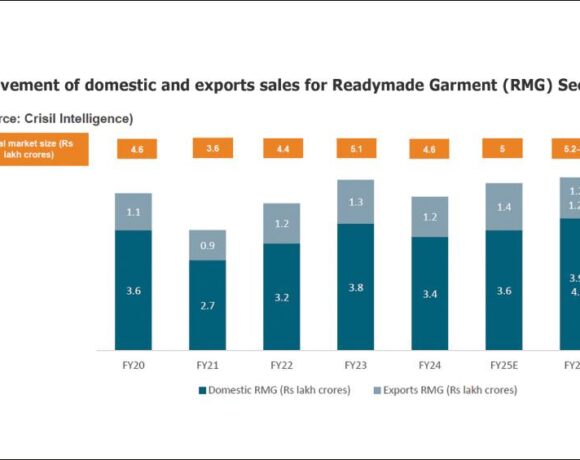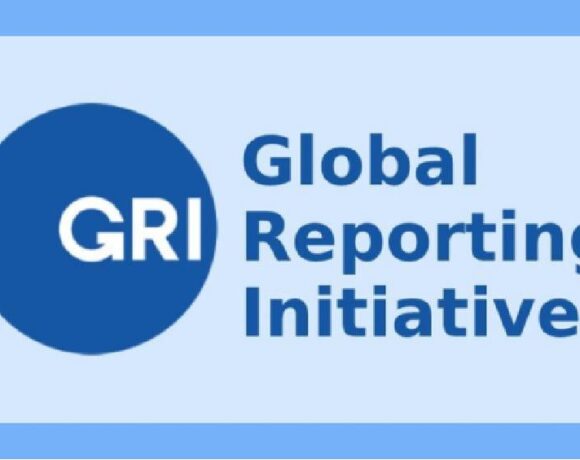T&A Sector’s Wish-list From The Upcoming Budget

Highlights of the industry recommendations:
- Removal of import duty from all varieties of cotton
- Increase the BCD on MMF yarn from the present 5% to 10%.
- Exempt varieties of textile raw material (fibre and yarn) which are not available domestically from the scope of Quality Control Orders (QCOs)
- Statutory/regulatory measures to curb cheap imports of textile products that are being manufactured in the country
- Extend the facility of duty-free Import of specified item/goods to exporters of made-ups
- Announce Technology Mission on Cotton – II
- Extension of the Interest Equalization Scheme for Textiles
- Institute a scheme similar to TUFS
- Scheme for encouraging the manufacturing of Indigenous textile machinery
- Scheme for promotion of renewable energy in Textiles
While Finance Minister Nirmala Sitharaman is all set to present the full budget for FY25, the domestic textile & apparel (T&A) sector has come up with its pre-budget memorandum, with a view to drawing government’s attention on various issues that are hindering the growth of the industry.
In one of its recommendations, Confederation of Indian Textile Industry (CITI), the apex trade & industry body, has urged the Ministry of Finance for the removal of import duty from all varieties of cotton, including cotton waste. Currently, raw cotton imports attract Basic Customs duty (BCD) of 5 per cent & Agriculture Infrastructure and Development Cess (AIDC) of 5 per cent, while there is levy of 10 per cent BCD on cotton base.
As per the CITI memorandum, Indian cotton industry is importing specialized varieties of cotton such as contamination-free, organic cotton, sustainable cotton, etc, which are not available domestically. These are being imported under nominated businesses to meet the quality requirements of foreign clients. Due to the import duty levied on cotton, domestic prices are ruling higher than international prices, as domestic suppliers offer prices based on import price parity.
“At present, cotton fibre is 15-20 per cent more expensive in India which is eroding the cost competitiveness of the downstream value-added cotton-based textile products. Thus, the import duty that was imposed to safeguard the interest of farmers is not fulfilling its purpose, rather hurting the domestic cotton textile value chain. The government has already been kind enough to exclude cotton of staple length exceeding 32.0 mm from the scope of import duty. However, it accounts for only about 30 per cent of the total cotton imports by India, and the import duty still affects about 70 per cent of the imported cotton,” says Rakesh Mehra, chairman, CITI.
“The levy of 10 per cent import duty on cotton and cotton waste is not giving any benefit to cotton farmers but is seriously impacting the handloom/powerloom home textile clusters and exports. Hence, in the larger interest of the industry, the government may consider removing the import duty from cotton and cotton waste,” adds Mehra.
“To protect the interest of the domestic MMF spun yarn industry against the backdrop of high import threat from countries like China, Bangladesh, Vietnam, South Korea and Indonesia, it is requested to increase the BCD on MMF yarn from the present 5 per cent to 10 per cent. At present, there is 5 per cent BCD for MMF fibre and 20 per cent BCD for MMF fabric,” says the CITI recommendation.
Post implementation of GST, the MMF spun yarn industry has come under serious threat of dumping of cheap yarns. In the pre-GST scenario, the domestic industry was safeguarded from cheaper imports through the imposition of Countervailing Duty (CVD) and Special Additional Duty (SAD). However, post-GST, both CVD and SAD have been scrapped. Moreover, man-made staple fibres, the raw material for such yarns, are 25-30 per cent more expensive in India than other competing countries, which makes MMF spun yarn imports attractive.
CITI has urged the ministry to exempt varieties of textile raw material (fibre and yarn) which are not available domestically, from the scope of Quality Control Orders (QCOs).
It says that there are a number of varieties of such raw materials which are being used for the manufacturing of value-added textile goods (yarn, fabrics, garments and made-ups). However, due to the non-availability of such products in the domestic market in terms of required quality/quantity, users of such products have to rely on imports of such product categories.
“In order to enable the industry to cater to the niche market based out of such product categories as also to support the industry in achieving the aspirational target set for the next five years and optimally leverage the recently announced schemes aimed at strengthening the MMF sector in India, the government is kindly requested to exempt the requested categories from the scope of QCOs till the time sufficient domestic availability is there,” adds the CITI memorandum.
Meanwhile, the industry has also demanded statutory/regulatory measures to curb cheap imports of textile products that are being manufactured in the country. Recently, the Government of India vide notification no. 77/2023 dated 16th March 2024 imposed a Minimum Import Price (MIP) on five varieties of synthetic knitted fabrics whose imports increased significantly recently, and that too at prices which are not financially viable for the domestic manufacturers. This MIP is enforced only till 15th September 2024.
“However, in order to safeguard the domestic industry, the government may continue with the MIP beyond 15th September 2024. Fix MSP of $3.5/kg for all types of knitted fabrics covered under chapters 6001, 6002, 6003, 6004 and 6005 as the fabric that was being imported under 6006 may now be imported under these HSN codes to save duty. Besides, exemptions may be granted from the applicability of regulatory compliances to high value-added/specialty products (raw material/intermediate/final products) that are not manufactured indigenously,” says the CITI Chairman.
The industry has also requested the government to announce Technology Mission on Cotton II (TMC II) with a focus on advanced seed technology, global best practices for seed sowing, agronomy, harvesting, handling, ginning and pressing and mission mode approach. There should be sizeable budget allocation for seed and agronomy technology under MM I; Technology Transfer under MM II; Clean cotton (MM III) and branding Kasturi cotton and its textiles and clothing products (MM IV).
CITI has also urged the government to extend the Interest Equalization Scheme (IES) for textiles (scheme expired on June 30, 2024) for at least three more years to catalyze the growth of Indian T&A exports. During the interim budget 2024-25, a provision of Rs 1,700 crore was made for the Ministry of Commerce for IES. “The government may grant another Rs 2,000 crore to extend the benefit of the scheme for the entire year 2024-25,” says the CITI report.
The IES was formulated to give the benefit in the interest rates being charged by the banks to the exporters on their pre and post shipment Rupee Export Credits. Considering the effectiveness of the scheme in increasing India’s exports, the government continued IES beyond its initially announced period and subsequently the scheme expired on 30th June 2024.
The industry has also requested the government to formulate an alternative scheme to Technology Upgradation Fund Scheme (TUFS) which was launched in 1999 with an aim to modernize and upgrade the textile industry.
“Currently there are no schemes to support investments and growth of existing manufacturers and MSME’s, as schemes like PLI and PM MITRA are for new investments only. Hence, in order to make the MSME sector viable and achieve the export goals of the government set by the Textile Minister, it is important that investors get support for investment, accordingly it is recommended to institute a scheme similar to ATUFS with provision of incentives for investment across the value chain,” urges CITI.
Among other recommendations, the industry has also requested the government for a scheme for encouraging the manufacturing of indigenous textile machinery.
The Ministry of Textiles has set an ambitious target of achieving a $350 billion market size by 2030 from the present level of about US$ 160 billion. It would require a significant capacity addition and thus the demand for textile machinery is going to increase in the years to come.
While at present India is one the largest exporter of textile and apparel products globally, it is largely dependent on imports of textile machinery and is the largest importer of the same globally. It is pertinent to note that indigenous textile machinery is available mainly only for the spinning sector and the industry has been highly dependent on imports for certain categories of machines.
“Since machine manufacturing is majorly a highly capital intensive industry, capital requirement for which is often met with loans from banks. To support the industry, government may come up with a scheme providing an interest subsidy @7 per cent for at least 10 years to enable the manufacture to settle down,” adds the CITI Chairman.
Moreover, the industry has also requested the government to come up with a scheme for promotion of renewable energy in textiles. “The government may allow all the textiles units to put renewable captive power without any restriction or extra charges like transmission & distribution charges, surcharges, etc. It is also requested that specific funds towards providing a capital subsidy of upto Rs 5 crore per legal entity may be granted which will be irrespective of the type of captive renewable energy plant installed by the textile unit,” adds the memorandum.
CITI has also demanded a National Textile Fund to support and grow investments in the textile sector with the objectives of making strategic investments by the government that can be leveraged to attract a much larger investment size; technology upgradation in the sector, especially the MSME sector, and incentivising integration and economies of scale.
“It is suggested to create an overall textile fund of Rs 1.8 lakh crore for debt funding for technology acquisition. This can unlock total investments of an estimated Rs 4.2 lakh crore with a direct fiscal cost to the government of only Rs 48,000 crore over the next five years, while about Rs 1.3 lakh crore may come from scheduled commercial banks,” says the CITI memorandum.















